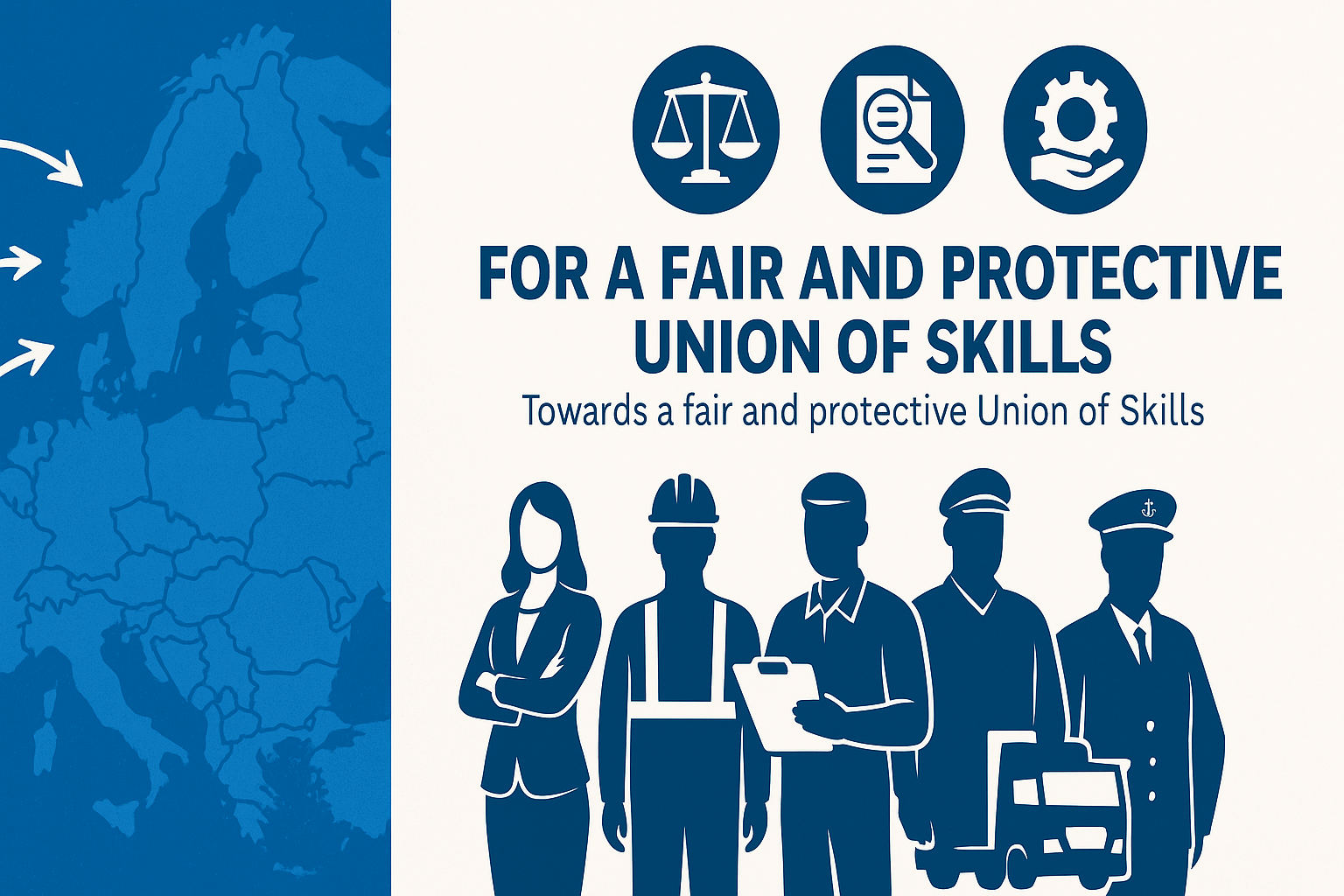Social issues
Key Social and Environmental Expectations in European Transport Policies
1. Make Social and Environmental Dimensions Core Pillars:
– Define performance criteria before pursuing profit.
– Link dividend distribution to achievement of social and environmental goals.
2. Protect the Technical and Human Investment in the Transition:
– Fight tax evasion and social/fiscal dumping.
– Harmonize social contributions by sector.
– Establish sector-specific social regulatory frameworks.
– Harmonize training paths and foster cross-border job synergies.
3. Protect European Public Services from Social Dumping:
– Reform public procurement criteria to prevent low-cost bias.
– Include strong social clauses in tenders.
– Limit the EU Commission’s role to competition rules; preserve national sovereignty.
4. Link European Recovery Aid to Social Criteria Post-COVID.

RAIL:
– Opening to competition does not improve safety or service quality.
– Air transport logic is not applicable to rail.
– Invest in modern rail networks—pillar of sustainable mobility.
– Adopt a systemic vision: include social/environmental impacts in cost analysis.
ROAD:
– Persistent unfair competition due to low labor costs in Eastern Europe.
– Enforce equal pay, but recognize enforcement limitations.
– Proposals:
– Establish a European “transport minimum wage”.
– Explore replacing labor costs with carbon pricing.
– Address social impact of autonomous vehicles.
MARITIME:
– Create a European maritime space with common rules.
– Harmonize social rules for intra-European ferry routes.
– Ban International Registers for regular EU routes.
– Impose compensation taxes for social contribution gaps.
– Require higher training standards for EU seafarers.
– Improve revalidation of licenses across Member States.
– Train more EU nationals to avoid skill shortages.
INLAND WATERWAYS:
– Recognize fluvial jobs as tension professions.
– Expand training access and regional coverage.
– Invest in green propulsion (LNG, Hydrogen).
– Rehabilitate small-gauge canals to revitalize regional river transport.
PUBLIC TRANSPORTS :
Given the social and environmental challenges at stake, competition in public transport may ultimately harm the public interest if not accompanied by a number of safeguards, particularly of a social nature:
- Maintain a high level of social and environmental guarantees, with EU-wide enforceable standards to prevent all forms of dumping. These rules should be considered public policy. European environmental standards should be identical across all EU member states.
- Ensure high-quality and harmonized customer service in all European countries.
- Place human beings at the center. New technologies should serve only as support tools.
- Harmonize infrastructure and maintenance policies.
- Promote the social responsibility of transport operators. This “Purpose” would give rise to mission-driven transport companies, including binding social and societal objectives (e.g. promoting integration into employment, supporting professional development, respecting gender equality, and upholding the principle of secularism).
